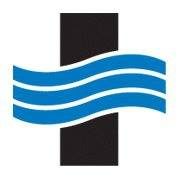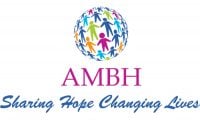Relapse Prevention Counseling Center
Drug Rehab Center in Des Plaines, Illinois
Relapse Prevention Counseling Center in Des Plaines, IL is an accredited rehabilitation facility specializing in evidence-based addiction treatment plans, offering both outpatient and intensive outpatient levels of care, as well as family therapy services and aftercare support.
About Relapse Prevention Counseling Center in Illinois
Relapse Prevention Counseling Center in Des Plaines, Illinois is a dedicated addiction and substance abuse treatment facility. It specializes in treating all forms of alcoholism and opioid addiction through outpatient care, aftercare support as well as intensive levels of care so that its patients can get the maximum amount of help to ensure lasting recovery. The center is accredited by SAMHSA which means that it has met standards set by the government to guarantee the highest quality of services for its clients.
Relapse Prevention Counseling Center provides comprehensive services for individuals suffering from addiction including individualized assessment, personalized treatment plan and strategies focused on relapse prevention in addition to educational therapies about chemical dependence and lifestyle recommendations. Their holistic approach centers around providing psycho-behavioral counseling along with professional drug testing and referrals for additional outpatient resources such as 12-step programs or family support services if needed until complete recovery is achieved. All these components are delivered under expert supervision by experienced practitioners who work closely within an integrated multidisciplinary team model promoting evidence based best practices according to SAMHSA guidelines underpinned with compassion, respect and dignity for those seeking healing at Relapse Prevention Counseling Center in Des Plaines, Illinois.
Genders
Ages
Modality
Additional
Accreditations
SAMHSA
Conditions and Issues Treated
Many people who struggle with opioid addiction need to attend specific programs like methadone , Suboxone or Vivitrol clinics.
These types of programs will provide the patient with legal, prescription medications that can help them overcome their cravings for illegal opioids like heroin or fentanyl . If the patient has a chronic condition like Hepatitis C, they must undergo treatment before they can begin taking these medications.
Levels of Care Offered
This center offers a variety of custom treatment tailored to individual recovery. Currently available are Aftercare Support, Intensive Outpatient, Outpatient, with additional therapies available as listed below.
An intensive outpatient program is usually the first phase of addiction treatment. It provides relief for those who are addicted, but are not ready to commit to an inpatient setting. Typically, the patient lives at home and is able to work or go to school. IOPs consist of a daily 3 to 5-hour program, and there is a required number of hours per week. Most patients go to IOP between 20 and 40 hours per week. The patient attends group counseling and individual therapy throughout the duration of treatment. They also meet daily with their therapist to discuss how it’s going and where they are in the recovery process.
The goal here is to teach patients healthy coping skills, such as stress management and identifying thoughts and behaviors that lead to relapse. The implementation of these skills will be useful as the individual transitions into the next phases of treatment.
An outpatient treatment program is set up to help with alcohol or drug addiction, or a co-occurring disorder. The patient must attend the Illinois facility for their therapy and other programs but are able to return home each night. The frequency of mandatory attendance decreases after much of Relapse Prevention Counseling Center‘s program is complete.
Aftercare is a term that’s used to refer to any sort of continuing care offered for a drug addict who has voluntarily entered a rehabilitation program. This type of care can be provided in several settings, including outpatient therapy sessions after the addict has completed an inpatient program. There are also 12-step support groups, such as Alcoholics Anonymous, which can provide additional help for addicts trying to stay sober.
Therapies & Programs
Couples therapy at Relapse Prevention Counseling Center focuses on addiction treatment for the addict and their spouse. The addict’s family, not just the addict, can benefit from this form of therapy. Couples therapy addresses communication problems, trust issues, lack of intimacy, and abuse in intimate relationships. Couples therapy can help rebuild trust between partners, which increases the chances for successful treatment and sustained recovery.
Intimate relationships can be damaged during addiction, and professional help may be necessary to rebuild the often destroyed trust and love. Couples therapy at Relapse Prevention Counseling Center helps couples improve communication and rebuild trust. Either or both partners will be helped by this treatment administered by professionals. This treatment can also help one or both partners if addiction is the problem.
Family therapy will also help families realize that the addiction is not their fault. For many years, people blamed themselves for an addict’s behavior and felt that they had done something wrong. This is not the case. Addiction is a disease, and it can strike anyone, even if their life seems fine from the outside. It can bring a lot of shame to a family when they have an addict in their midst, but if everyone is open and honest with each other, then they can help everyone stay in recovery.
Group Therapy is utilized by drug treatment centers like Relapse Prevention Counseling Center to provide the recovering drug addict with a platform to talk about their feelings and experiences. It also provides for an opportunity to learn from other addicts who have successfully overcome their addiction.
Group Therapy is employed in lectures, seminars, or discussion groups (the latter two are typically conducted as “therapy groups”). It is recommended that all group members be recovering addicts for this type of therapy to work (though it does not exclude others with lived experience).
Trauma therapy is a clinical process that helps individuals deal with mental stress often caused by traumatic events. It is generally done for children, teenage victims of sexual assault, and war veterans. The therapist helps the person identify, understand and work through the problem. This is done with the help of talking about it in group or one-on-one counseling sessions. Therapists use relaxation, role-playing, art, and music to help the person open up about what is bothering them.
Cognitive behavioral therapy is also a popular service for individuals living with addiction. This type of supportive treatment uses both one-on-one counseling and group sessions to teach addicts how to identify thoughts, behaviors and emotions that might increase their risk of relapse.
These professionals can help addicts develop coping skills for managing stress, improving self-esteem and overcoming triggers. They might also use behavioral therapy to help addicts learn how to avoid cravings and warning signs that could lead them back into addiction.
Therapy can be used as a step-down from inpatient treatment or as the primary method of overcoming an addiction. No matter which option is best for the addict, they will teach important emotional coping techniques, which can make it easier for addicts to get through the tough days.
(REBT) was developed by Dr. Albert Ellis in 1955. The therapy is based on the premise that our beliefs lead to and maintain our emotions and behaviors. Therefore, if a person has irrational thoughts, they will have an unhealthy emotional life. And as long as those irrational beliefs remain unchanged, they will continue to have unhealthy emotions and behaviors.
REBT is a purely psychological therapy, meaning it does not incorporate the use of medications or supplements. Instead, REBT focuses on helping people understand, respect, and accept their feelings without judgment, enabling them to have more control over their actions and behaviors.
The therapeutic process is straightforward: clients learn to identify the irrational beliefs that cause distress, challenge good coping statements, and replace them with healthy, rational beliefs.
Training in improved life skills helps those recovering from addiction feel more capable of self-care. Relapse Prevention Counseling Center are daily skills that give the person the tools they need to survive.
The therapy covers practical activities like cooking, job hunting, social interaction, and money management, helping to fill in the knowledge gaps caused by addiction.
These life skills help the person self-manage their recovery and stay on track. It also reduces relapse risk as they gain confidence in their day-to-day abilities.
Payment Options Accepted
For specific insurance or payment methods please contact us.
Additional Details
Specifics, location, and helpful extra information.
Des Plaines, Illinois 60016 Phone Number(847) 824-2475 Meta DetailsUpdated November 25, 2023
Staff Verified
Relapse Prevention Counseling Center Patient Reviews
There are no reviews yet. Be the first one to write one.
Des Plaines, Illinois Addiction Information
In 2016, more than 2,350 Illinoisans died from drug overdoses. More than 5,500 deaths annually occur in Illinois due to the abuse of alcohol and other drugs. 7.17% of Illinois residents reported using illicit drugs in the past month (2018). Substance abuse costs the state approximately $3.5 billion every year.
The impact of drug abuse on the Des Plaines, IL community is significant. There were over 1,000 admissions to drug rehabs in the city in 2016. In Des Plaines, there were 1,532 admissions to drug and alcohol rehab facilities in 2014 and heroin was the primary drug of choice. Recovery from addiction is a challenging but rewarding process, and living in Des Plaines can make it easier to stay on track.
Treatment in Nearby Cities
- Belleville, IL (267.5 mi.)
- Dekalb, IL (44.9 mi.)
- Orland Park, IL (28.6 mi.)
- Beardstown, IL (192.6 mi.)
- West Chicago, IL (19.5 mi.)
Centers near Relapse Prevention Counseling Center
The facility name, logo and brand are the property and registered trademarks of Relapse Prevention Counseling Center, and are being used for identification and informational purposes only. Use of these names, logos and brands shall not imply endorsement. RehabNow.org is not affiliated with or sponsored by Relapse Prevention Counseling Center.








